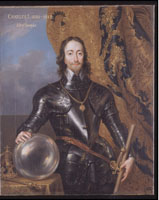Petition of Right

In response to Charles I's levy of a forced loan in 1627 and his imprisonment of anyone who failed to contribute to it, the English Parliament adopted the Petition of Right in 1628. Strongly influenced by Sir Edward Coke, the petition was originally intended by members of the House of Commons as a Bill of Rights. It asserted that taxes could be levied only with the consent of Parliament, affirmed that a subject could not be arrested or tried by the state for unspecified reasons (seen by some as a violation of habeas corpus as guaranteed in Magna Charta), declared martial law illegal, and stated that troops could not be quartered in private homes. Understanding that Parliament would refuse all future grants of money to the King unless he accepted it, Charles signed the petition but did so as a right granted by the grace of the monarch and not as the recognition of a right held by the people through their representatives.






